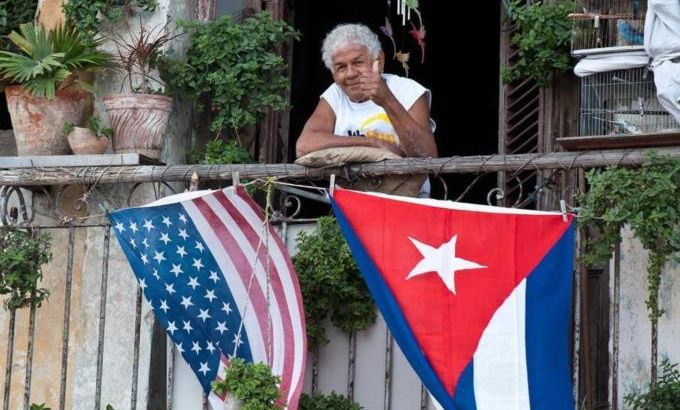US and Cuba hail first day of historic talks
Senior diplomats claim a productive start of unprecedented talks on restoring ties despite heated migration disputes.

US and Cuban officials have claimed a productive first day in historic talks in Havana on Wednesday, despite disagreements over migration policies ahead of negotiations to restore diplomatic ties.
Each side described on Wednesday the first of two days of talks as constructive even though they remained deeply at odds over the exodus of Cubans to the United States.
Keep reading
list of 4 itemsUS to allow more flight routes to Cuba in latest restriction lift
Cuba has a new leader and it’s not a Castro
A new era in Cuba?
It was the first meeting in Havana since the momentous decision by US President Barack Obama and Cuban leader Raul Castro in December to seek normal ties after fifty years of hostility.
Roberta Jacobson, the US assistant secretary of state for Western Hemisphere affairs, became the highest-ranking American official to set foot in Cuba since 1980 when she landed in Havana around midday.
She was due to meet Cuban counterparts for a working dinner on the eve of talks aimed at negotiating the reopening of embassies in Havana and Washington, a US official said.
In Washington, US Secretary of State John Kerry said the two sides still have much to negotiate before the Cold War rivals can normalize ties frozen since 1961.
“When it is timely, when it is appropriate, I’ll look forward to traveling to Cuba in order to formally open an embassy and begin to move forward,” Kerry told reporters.
A Cuban foreign ministry official sought to downplay expectations of major breakthroughs this week.
“We can’t expect that everything will be resolved in one meeting,” the official said, according to state media, adding that normalizing ties was “a much longer and complex process.”
Migration dispute
Jacobson’s deputy, Alex Lee, represented the US side on the first day of talks in the capital’s convention center, sitting across from the head of the Cuban foreign ministry’s US affairs department, Josefina Vidal.
“The productive and collaborative nature of today’s discussion proves that despite the clear differences that remain between our countries, the United States and Cuba can find opportunities to advance our mutually shared interests,” Lee said after the talks.
For her part, Vidal said: “Cuba aspires to have a normal relationship with the United States, in the broader sense but also in the area of migration.”
But Vidal criticised US migration policies, saying that they “don’t correspond with the current bilateral context of relations between Cuba and the United States”.
The migration talks tackled an issue that has vexed both nations for years, with Cubans regularly hopping on rickety boats to reach Florida, 145 kilometres away.
US policy gives Cubans who set foot in the United States quick access to permanent residency while those caught at sea are deported back to their island.
The United States has seen a surge of Cuban migrants who apparently fear that the US-Cuba negotiations will end the policy.
The number of sea intercepts doubled in December compared to the previous year. But Lee said the Obama administration was “completely committed” to upholding the current rules.
For Thursday’s embassy talks, the US side wants Cuba to reaccredit its diplomats, lift travel restrictions for them within the island, ease shipments to the US mission and lift a cap on personnel.
Both nations currently have “interests sections” in each other’s capitals.